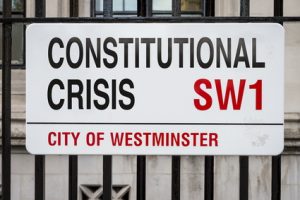The sudden and dramatic demise of holiday giant Thomas Cook has shaken the holiday industry to the core. This is a company which has been in existence for not far short of 200 years and was seen as the bellwether of the industry by many. Whether the company failed to keep pace with changing online trends, was impacted by Brexit or simply managed incorrectly is a matter for debate. What we do know is that as of 2 AM on 23 September 2019 Thomas Cook was placed into compulsory liquidation by creditors. A rumoured shortfall of £250 million has seen over 150,000 customers stranded overseas.
Operation “Matterhorn” will see the largest peacetime repatriation of UK citizens with a full repatriation expected within the next two weeks. It is estimated that 1 million people have lost their holidays although the majority should be reimbursed via the industry’s ATOL bond system.
Companies in administration and liquidation
We know that Thomas Cook has been placed into compulsory liquidation by creditors. In order to give a broader picture of the scenario facing those pursuing personal injury compensation we will also take a look at the process of administration. While many people believe that administration and liquidation are one and the same action they are not.
Administration
When a company is placed in administration it is predominantly because mounting financial pressure is threatening the existence of the operation. A move to enter into administration will halt any short term legal action against the company and effectively give an appointed administrator breathing space. During this period it may be possible to reorganise the company’s assets and liabilities to create a profitable business going forward. If it is not possible to create a viable business, or there are no bias for the overall business, the next process would be liquidation.
Liquidation
There are three different types of liquidation when it comes to companies and they will impact the chances of a successful personal injury claim. These are common referred to as:-
Members’ voluntary liquidation
In this scenario the company is still solvent but a decision has been taken by shareholders to liquidate the company. Once all assets have been sold off and liabilities covered this should in theory leave a surplus.
Creditors’ voluntary liquidation
In this situation directors have chosen to take action to close down what is inevitably an insolvent company. This is when the liabilities of the company far outweigh the assets and the company is unable to cover debt repayments. It is illegal for a company to trade while insolvent and the responsibility of company directors to monitor and take action.
Compulsory liquidation
As we have seen with Thomas Cook, compulsory liquidation is where the closure of the business is forced through by creditor’s legal action. Press headlines seem to indicate that Thomas Cook had a £250 million funding gap in the short term. Despite last-minute negotiations with shareholders, banks and creditors, the company was unable to raise additional funds and the plug was pulled at 2 AM on Monday, 23 September 2019. As we touched on above, it is illegal for a company to trade while knowingly insolvent so if creditors had not taken action then the directors of the company would have been forced to do so.
The route down which Thomas Cook has been forced effectively removes the interests of the company from a liquidation process. It is simply a case of selling off assets at the best price to raise funds to at least partially pay off creditors.
Claiming against a company no longer trading
There are a number of issues to take into consideration when claiming personal injury compensation against a company which is no longer trading.
Contacting the company
As legally the company has ceased trading and no longer exists, it is unlikely that you will receive any response from communications sent to the company’s email or trading address. The best course of action would be to contact the company’s liquidator although they will no doubt be inundated with claims and counter claims once the collapse of the company has been announced.
Claiming off company insurance
In this scenario we will assume that the injury occurred prior to the compulsory liquidation of the company. As the company no longer exists, although the liquidators will be involved, it may be beneficial to contact the company’s insurers directly. Finding the identity of the company’s insurers and their contact details may be easier said than done. Even though the company has ceased trading, if you have evidence to show that your personal injury occurred while the company was “live” the likelihood is that the company would still be covered.
Gathering evidence
Some people may assume that it is simply a case of lodging a claim for compensation and the insurers will pay out. Just because the company has gone into compulsory liquidation does not mean that the process for claiming personal injury compensation changes. You will still need to gather evidence which will include:-
- Witness statements
- Medical evidence
- Photographic evidence if possible
- Exact time and place of the incident
- Amount of compensation claimed
While it is obviously best to stake your compensation claim as soon as possible, you also need to ensure that your evidence is watertight.
Chances of success
If a company has gone into compulsory liquidation then inevitably this means that the company’s liabilities are significantly greater than their assets. While many businesses are legally obliged to have public liability insurance in place this is not always the case. Therefore, if you are effectively suing the company for personal injury compensation compulsory liquidation post the event then you may struggle. At best you will require sound legal advice when pursuing any claim but more often than not, as the company is unlikely to make provisions for outstanding liabilities, it can be near impossible.
The chances of success are far greater if the company had an insurance policy in place to cover personal injury claims. It would then simply be a case of contacting the company’s insurer directly (as the company no longer exists) and pursuing action down that route. In theory there is nothing to stop your claim being handled in the traditional manner but you may well have to keep “reminding” the insurance company of your claim. As the company is no longer in existence it might be difficult for the insurance company to dispute your version of events and refuse compensation. You may even be fortunate enough to receive a fairly quick out-of-court settlement.
If there were extenuating circumstances surrounding your personal injury claim it may well be possible to pursue the directors for compensation. This is a highly unusual scenario but not one that cannot be ruled out completely. However, it is fair to say that the best and easiest course of action would be for the company to have insurance in place and the claimant’s representatives to contact the insurance company directly.
Injuries are not just physical
In recent years we have seen a significant rise in the number of holiday based personal injury claims. It has got to the stage where some resorts across Europe have refused to take on some holiday operators as a consequence of the level of personal injury claims received. There have been occasions where legal action has been taken to pursue fraudulent cases but it is fair to say there are still many perfectly valid personal injury claims related to holidays.
At this point it is also worth noting that while we often relate injuries to visible physical issues the legal definition also takes in medical issues and mental health issues. In legal terms mental injury is treated in exactly the same way as a physical injury. So, if you believe that action taken or not taken by Thomas Cook for example resulted in stress and other mental health issues then you may still have a case for compensation.
If we expand on the Thomas Cook example, any personal injuries which occurred after the company ceased trading may be difficult to pursue. On one hand the company did not exist from 2 AM on 23 September 2019 and if there was no insurance in place to cover the post liquidation event this would likely block the most common route to compensation.
Taking legal advice
The legal niceties of compulsory liquidation can be extremely complex therefore if you believe you have a compensation claim against Thomas Cook for example, it is essential that you take advice from a personal injury claims solicitor. Unfortunately, compensation claims against companies in compulsory liquidation are not rare. So, you need to ensure that everything is done by the book, all information is made available and you know the correct party to contact.
As many people come to terms with the demise of Thomas Cook it is also advisable to cancel any direct debits you may have with the company. While there is no suggestion the company will collect previously valid standing orders/direct debits from your bank account you don’t want to take that chance. If a payment was inadvertently taken by those liquidating Thomas Cook it would be a nightmare to get it back!
Conclusion
The Thomas Cook saga has today come to a very sad and disappointing end with the loss of a company which was born 178 years. The company is no longer in existence and it is now the job of the official liquidator to raise as many funders as possible to pay off creditors. The easiest way to claim compensation would be via the company’s insurance company – assuming they have/had the relevant insurance in place. There is no legal reason, other than a weak/fraudulent claim, that the company’s insurers would not consider all claims made.
Over the next two weeks, as operation “Matterhorn” reaches full speed, we can only imagine the financial and emotional heartache felt by those stranded overseas. The physical and mental impact as a consequence of the situation could be immense. It will be interesting to see the level of personal injury claims against Thomas Cook in the final throes of the company’s existence. Is there a valid insurance in place? Will all of the claims be above board? Is there a temptation for consumers to reduce their financial losses and stake a claim against the company?



